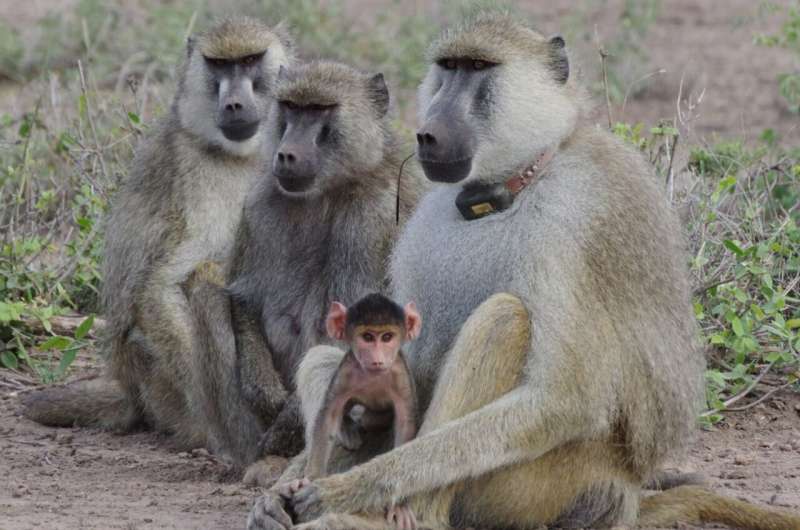In a groundbreaking study, researchers from the University of Notre Dame have discovered that strong early-life relationships between father and daughter baboons can significantly impact the lifespan of female baboons. Published in the Proceedings of the Royal Society B, the study highlights the importance of paternal interaction in species where fathers are typically less involved in caregiving.
While maternal care is well-documented in the animal kingdom, paternal involvement is rare. However, this new research suggests that when father baboons choose to co-reside or interact with their daughters, it can lead to meaningful differences in their daughters’ survival rates. The study evaluated 216 female baboons in the Amboseli ecosystem of East Africa, revealing that those with strong father-daughter bonds lived two to four years longer than those with weaker relationships.
Understanding Paternal Influence in Baboons
Elizabeth Archie, a professor of biological sciences at Notre Dame and the corresponding author of the study, explains that male baboons often transition into a ‘dad mode’ after achieving peak reproductive success. “Once they’ve had a few kids and their condition declines, they don’t disperse as much and have more time to invest in their offspring,” Archie noted.
The study found that about one-third of the daughters lived in the same social group as their fathers for three years or more, while the remaining two-thirds had fathers who either left the group or died within their first three years of life. This co-residence period was crucial in establishing strong grooming relationships, which serve as a form of social bonding and hygiene.
“Grooming could be considered the human equivalent of sitting down, having a cup of coffee and a good chat,” Archie shared.
Implications for Survival and Social Dynamics
The research indicates that strong father-daughter relationships not only contribute to longer lifespans but also enhance social interactions. Father-daughter pairs that lived together for extended periods had stronger grooming relationships, which did not predict survival when juvenile females groomed with other adult males.
This could be due to the protective role fathers play. Male baboons often intervene in conflicts, safeguarding their daughters and even the mothers from other group members. “Males expand a child’s social network, creating a safety zone for their daughters,” Archie explained.
Broader Implications and Future Research
This study is part of the long-running Amboseli Baboon Research Project, co-directed by Archie, Susan Alberts from Duke University, and Jenny Tung at the Max Planck Institute for Evolutionary Anthropology. The project, which began in 1971, is one of the world’s longest-running primate studies.
Archie believes these findings may offer insights into the evolutionary roots of human parental care. Although mammal fathers may not provide extensive care, their seemingly minor contributions can have significant consequences, at least in baboons.
“Early life adversity has a powerful effect on lifespan, so this study suggests that having a dad allows females that have experienced other forms of adversity to recover some of those costs,” Archie said.
As the study continues to unfold, researchers like David Jansen at the University of Wisconsin-Madison and J. Kinyua Warutere at the Amboseli National Park in Kenya are keen to explore further the nuances of paternal influence in other species.
For more detailed findings, the study “Early-life paternal relationships predict adult female survival in wild baboons” can be accessed in the Proceedings of the Royal Society B.
 Father-Daughter Bonds Enhance Longevity in Female Baboons, Study Finds
Father-Daughter Bonds Enhance Longevity in Female Baboons, Study Finds Moon Phases Explained: What to Expect on July 6, 2025
Moon Phases Explained: What to Expect on July 6, 2025 Moon Phases Explained: July 6, 2025 Waxing Gibbous Illuminates the Night Sky
Moon Phases Explained: July 6, 2025 Waxing Gibbous Illuminates the Night Sky Mysterious Skull Formation on Canadian Coast Sparks Alien Theories
Mysterious Skull Formation on Canadian Coast Sparks Alien Theories Yulia Putintseva Requests Spectator Removal at Wimbledon Over Safety Concerns
Yulia Putintseva Requests Spectator Removal at Wimbledon Over Safety Concerns